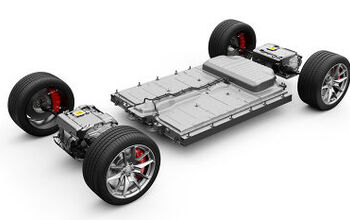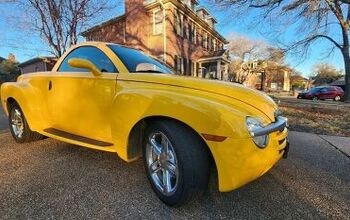Hyundai and Kia to Recall 1.3 Million Vehicles Over Repeat Engine Debris Offense

Hyundai Motor Co. and Kia Motors Corp. have announced plans to recall 1.3 million vehicles in the United States and South Korea for engine defects that could result in stalling. While no automaker wants to face the possibility of a recall, Hyundai Motor Group is already facing a sales slump in both North America and Asia.
Having to waste millions on a recall that further brings the company’s ability to regulate quality into question is the last thing it needs. Last month, Hyundai recalled roughly one million cars seat for a faulty fastener that occasionally caused seat belts to detach in a crash.
For the Western market, the recall affects Kia’s Optima, Sorento and Sportage — while Hyundai will be recalling the Sonata sedan and Santa Fe crossover. The companies are only waiting for regulatory approval for the proposed fix. The 171,348 vehicles being recalled in South Korea seem to be suffering from a similar manufacturing problem as the American vehicles, which both result in engine stalling.
A Hyundai spokeswoman who spoke with Reuters said the latest recall is unrelated to the global recall of nearly 500,000 Sonatas in 2015, but South Korean government officials disagree.
“[This] recall is related to a manufacturing process problem, not the structural problem of Theta 2GDi engines and we have completed improvements through appropriate measures,” reads Hyundai’s official statement.
The South Korean ministry claims that metal debris surrounding the crankshaft of pre-August 2013 Theta 2 powerplants could cause damage, leading to lugging or stalling. That’s interesting, as Hyundai’s 2015 North American recall was also due to engine debris in the direct-injection motors.
In North America, the affected models include the 2013 and 2014 Hyundai Santa Fe Sport and Sonata, the 2011 through 2014 Kia Optima, 2011 to 2013 Kia Sportage SUVs, and the 2012 to 2014 Kia Sorento.
The recall of Korean cars begins on May 22nd, while American vehicles are eligible for repairs starting May 19th.
[Image: Hyundai Motor Group]

A staunch consumer advocate tracking industry trends and regulation. Before joining TTAC, Matt spent a decade working for marketing and research firms based in NYC. Clients included several of the world’s largest automakers, global tire brands, and aftermarket part suppliers. Dissatisfied with the corporate world and resentful of having to wear suits everyday, he pivoted to writing about cars. Since then, that man has become an ardent supporter of the right-to-repair movement, been interviewed on the auto industry by national radio broadcasts, driven more rental cars than anyone ever should, participated in amateur rallying events, and received the requisite minimum training as sanctioned by the SCCA. Handy with a wrench, Matt grew up surrounded by Detroit auto workers and managed to get a pizza delivery job before he was legally eligible. He later found himself driving box trucks through Manhattan, guaranteeing future sympathy for actual truckers. He continues to conduct research pertaining to the automotive sector as an independent contractor and has since moved back to his native Michigan, closer to where the cars are born. A contrarian, Matt claims to prefer understeer — stating that front and all-wheel drive vehicles cater best to his driving style.
More by Matt Posky
Latest Car Reviews
Read moreLatest Product Reviews
Read moreRecent Comments
- Jeff I noticed the last few new vehicles I have bought a 2022 Maverick and 2013 CRV had very little new vehicle smell. My 2008 Isuzu I-370 the smell lasted for years but it never really bothered me. My first car a 73 Chevelle and been a smoker's car after a couple of months I managed to get rid of the smell by cleaning the inside thoroughly, putting an air freshener in it, and rolling the windows down on a hot day parking it in the sun. The cigarette smell disappeared completely never to come back. Also you can use an ozone machine and it will get rid of most odors.
- Lou_BC Synthetic oil for my diesel is expensive. It calls for Dexos2. I usually keep an eye out for sales and stock up. I can get 2 - 3 oil and filter changes done by my son for what the Chevy dealer charges for one oil change.
- Joe65688619 My last new car was a 2020 Acura RDX. Left it parked in the Florida sun for a few hours with the windows up the first day I had it, and was literally coughing and hacking on the offgassing. No doubt there is a problem here, but are there regs for the makeup of the interiors? The article notes that that "shockingly"...it's only shocking to me if they are not supposed to be there to begin with.
- MaintenanceCosts "GLX" with the 2.slow? I'm confused. I thought that during the Mk3 and Mk4 era "GLX" meant the car had a VR6.
- Dr.Nick What about Infiniti? Some of those cars might be interesting, whereas not much at Nissan interest me other than the Z which is probably big bucks.


































Comments
Join the conversation
This affects my 13 Optima Hybrid, as it did my son's 11 Sonata. I'm grouchy. I already know two people whose engines blew up from this fault: one was the 2.4, another was the 2.0T. People have been making crankshafts for ~150 years, and this is inexcusable. (I think, in fact, it is actually Hyundai/Kia's supplier who botched the crankshafts, but nevertheless, H/K owns the problem, particularly since they didn't catch the fault.)
Enjoy your warranty! That's why they have one of the most comprehensive coverage in the industry and it is backfiring on them...multiple times.